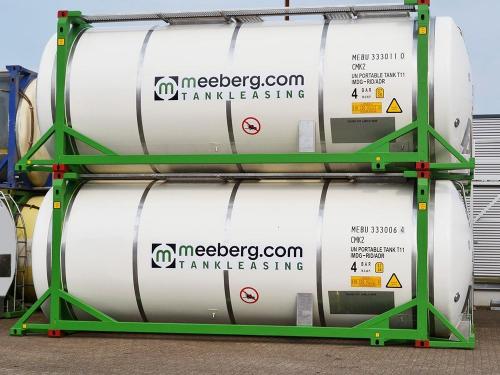What is ISO Tank Container?

In the vast field of international logistics and trade, various specialized containers help move products all over the world. While traditional shipping containers have been the mainstays of the field, but there's one niche in this area that is called a tank container. The cylindrical container, sometimes known as ISO Tank Container are engineering marvels that are designed to store, transport and handle large quantities of gasses, liquids even powders, safely and effectively.
This article will take you deep into the tank container world by exploring their background as well as their design, uses, and the crucial function they play in today's modern world economy.
A Historical Perspective
Before we get into the intricate details that are involved in ISO Container Tank design, we should go back in time to comprehend the historical background. Shipping containers were the catalyst for revolutionizing the world of logistics.
In the late 20th century, the metal shipping container that was standard also known as an intermodal container, revolutionized the way that goods were moved over land and water. However, moving gas, liquids, along with other heavy materials presented a unique challenge that needed a specialized solution.
Versatility in Cargo Handling
Tank containers are extremely versatile and can be used across a variety of industries. They're designed to deal with a variety of substances, including gases, liquids, and powders. Let's explore:
Chemicals Tank containers are commonly used within the industry of chemical for transporting diverse chemicals, such as solvents, acids, and Petrochemicals.
Food and drinks: Liquid foodstuffs items like wines, juices of fruit, as well as edible oils, are typically transported via tanks.
Tank containers for petroleum products are used extensively for the transportation of petroleum products like gasoline, crude oil, and diesel fuel.
Tank containers for hazardous substances are essential for the secure transport of hazardous materials, which include radioactive chemicals, toxic substances and flammable gasses.
Powders: Some tank containers are specifically designed for the transport of dry bulk substances like flour, cement, or minerals.
Cost-Effective Transportation
One of the main benefits of using tank containers is the cost-effectiveness. In comparison to conventional methods of transporting bulk liquids like drums or tank trucks, Tank Container provide numerous economic advantages.
In the first place, tank containers can be extremely reusable. After emptying the tank, they can be swiftly cleaned and ready in advance of the next delivery, thus reducing the need for waste packaging such as barrels or drums.
Furthermore, tanks are also intermodal, which means they can effortlessly switch between different modes of transport without necessity of intermediate handling.
Additionally, tank containers are well-suited to long-distance transport, which makes the perfect container for international commerce. They can be transported using regular shipping vessels, providing high-quality global connectivity.
Global Impact of Tank Containers
The world economy is heavily dependent on the smooth movement of goods. Tank containers play a crucial part in this complex cycle of demand and supply. Tank containers enable international trade of essential commodities and help ensure that the products are delivered to consumers quickly and safely.
Take the chemical industry, for instance. Chemical producers have global operations in sourcing raw materials, and selling finished products across the globe.
The energy industry is a further benefit of tank containers. The transport of refined and crude petroleum is done in huge quantities to meet the global energy requirements.
For the food and drink industry, tanks help supply fresh and high-quality items to the global market.
Challenges and Future Trends
Tank containers provide a variety of advantages, they're not completely free of their problems and constantly changing trends. Some of the most crucial issues to be considered in the world of tank containers are:
Safety and Compliance: The transportation of dangerous materials in tanks is subject to strict regulations set by international organizations as well as national governments.
Technology Advancements: The business is constantly evolving thanks to technological advances, Tank Container Software, including advanced tracking and monitoring systems that improve cargo visibility and security in the process of transport.
Environmental Sustainability: The global emphasis on sustainability in the environment grows the pressure for the industry of logistics, which includes tank container transport, in order to reduce carbon emissions and limit the environmental impact.
Security: Due to the significance of tank container shipping and their vulnerability to theft or tampering with, security measures have been made more robust, such as tamper-evident seals as well as GPS tracking.
Customization: Tank containers are becoming more customized to meet specific cargo requirements, such as enhanced insulation for temperature-sensitive goods or specialized linings for corrosive materials.
Economic Trends: Economic issues, such as changes in the price of oil and trade tensions between countries, could significantly affect the need for tank container transportation.
Conclusion
In a world where efficient transportation of goods is vital to economic development in addition to global connection, tank container is an unnoticed hero playing an integral part in our lives.
If you're drinking an imported glass of wine, fuelling your vehicle or using chemical products, the chances are that tanks has the ability to bring items to your doorstep, which makes it an integral component of our modern-day global economy.
Comments